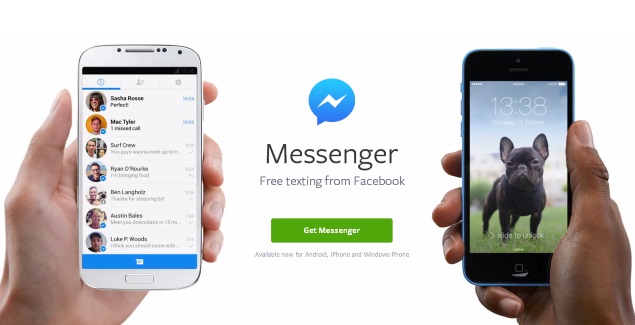Facebook Messenger App Made Mandatory for Chatting on Android and iPhone
Advertisement

Facebook, back in April, started forcing the Messenger app on users for mobile chat. The company had then announced that it was removing the chat messaging feature from its main Facebook app, forcing users to download the Messenger app for chat with Facebook contacts on their mobiles.
Now, TechCrunch reports that the company will stop allowing instant messaging via main Facebook for Android and iPhone apps, prompting all users to download the company's standalone Facebook Messenger app.
Facebook initially started notifying users in France, England and several other European countries for downloading the dedicated Messenger app for instant messaging on the social platform.
The social networking giant told TechCrunch it had seen "positive results" in Europe in terms of user engagement, and so decided to move ahead with rolling-out the standalone app to everyone.
The company notes that users can continue to chat via the main Facebook app on iPad tablets, feature phones, Windows Phone devices, via Paper app, and the Web-based desktop interface.
Advertisement
Notably, for easy switching between the Facebook app and the Messenger app, the social networking giant has now included a Messenger shortcut option at the bottom of the Facebook app. Once clicked, users are led to the Messenger app, from where they can head back to the main Facebook app by clicking on the 'touch to return to Facebook' option.
In an official statement, quoted by TechCrunch, Facebook said, "In the next few days, we're continuing to notify more people that if they want to send and receive Facebook messages, they'll need to download the Messenger app. As we've said, our goal is to focus development efforts on making Messenger the best mobile messaging experience possible and avoid the confusion of having separate Facebook mobile messaging experiences. Messenger is used by more than 200 million people every month, and we'll keep working to make it an even more engaging way to connect with people."
Advertisement
Previously, Facebook's Mark Zuckerberg shared the news that the company's messaging app, Messenger, was being used by more than 200 million active users every month. Zuckerberg made the announcement during the company's first-quarter earnings call. According to Facebook, the monthly audience of Messenger was on par with Instagram's 200 million active users.
It's worth mentioning that Facebook's standalone app, Messenger will be up against the likes of some popular instant mobile messaging apps such as WeChat, Line, Snapchat and Viber. The social platform announced plans in February to buy the popular WhatsApp messaging app for $19 billion. The company recently also unveiled its Slingshot app, an ephemeral messaging app similar to Snapchat.
For the latest tech news and reviews, follow Gadgets 360 on X, Facebook, WhatsApp, Threads and Google News. For the latest videos on gadgets and tech, subscribe to our YouTube channel. If you want to know everything about top influencers, follow our in-house Who'sThat360 on Instagram and YouTube.
Advertisement
